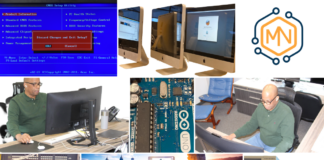🕒 4 min read
Amazon — the titan of online retail and cloud computing — is no stranger to transformation. But its latest move may redefine not only how the company operates, but how the entire corporate world views the human role in an AI-driven economy.
After ordering corporate staff back to offices five days a week earlier this year, CEO Andy Jassy made it clear that the company intends to “operate like the world’s largest startup.” Behind that statement lies a deeper strategy: rebuilding Amazon’s workforce around generative AI and autonomous digital agents.
In April, Jassy’s shareholder letter described a culture that must move faster, think leaner, and strip away bureaucracy — a vision now being operationalized through aggressive investment in AI infrastructure. Amazon’s capital expenditures are set to reach $100 billion in 2025, much of it fueling new AI models and automation across its logistics, AWS, and HR systems.
AI’s promise comes with workforce consequences
The message to employees was subtle at first — “AI will change the way our work is done.” But by June, it became a clear warning:
“We will need fewer people doing some of the jobs that are being done today,” Jassy told employees, acknowledging that the company’s reliance on AI will lead to a smaller corporate workforce in coming years.
Those fears are now being realized. Reports from Fortune and TheStreet suggest Amazon is preparing another major layoff, this time targeting its Human Resources division, which may shrink by 15%. With more than 10,000 HR employees globally, the impact will be significant — and symbolic. HR has traditionally been one of the most “human” functions in any enterprise, but it’s now being reshaped by machine-driven hiring tools, predictive performance analytics, and AI-based onboarding systems.
This follows earlier cuts across Amazon’s communications, devices, and AWS units — all coinciding with the deployment of generative systems designed to reduce manual workloads.
A trend echoing across big tech
Amazon isn’t alone in this shift. Google, Meta, Microsoft, and IBM have all executed similar moves this year. IBM CEO Arvind Krishna even admitted that “AI has replaced hundreds of HR workers” — a statement that crystallized the anxiety many workers now feel: that AI is coming for white-collar jobs next.
But here’s the truth most headlines miss: AI is not replacing people — it’s replacing tasks, and the people who understand AI will replace those who don’t.
AI won’t take your job soon, but the person who knows AI will
Generative AI and intelligent agents cannot “see” your workplace. They don’t observe body language, hallway conversations, or the subtle cultural mechanics that make a team function. They assess systems through data, not human context.
What they can do — extraordinarily well — is automate, simulate, and optimize. And that changes the skill equation. The next corporate survivor isn’t the person who avoids AI, but the one who supervises it, trains it, and interprets its output within human systems.
Amazon’s transformation is not an isolated event — it’s a signal. We are entering an era where AI fluency becomes the new literacy. Every knowledge worker — from HR to marketing to logistics — will need to understand how to collaborate with AI agents that handle much of the cognitive labor once performed manually.
The takeaway
What we’re witnessing is not a loss of jobs — it’s a redefinition of value. Those who learn to harness AI will command new positions of influence, designing and guiding the systems that others fear will replace them.
Amazon’s workforce evolution is just one chapter in a broader narrative:
The future belongs to humans who teach machines what to see, how to think, and when to act.









